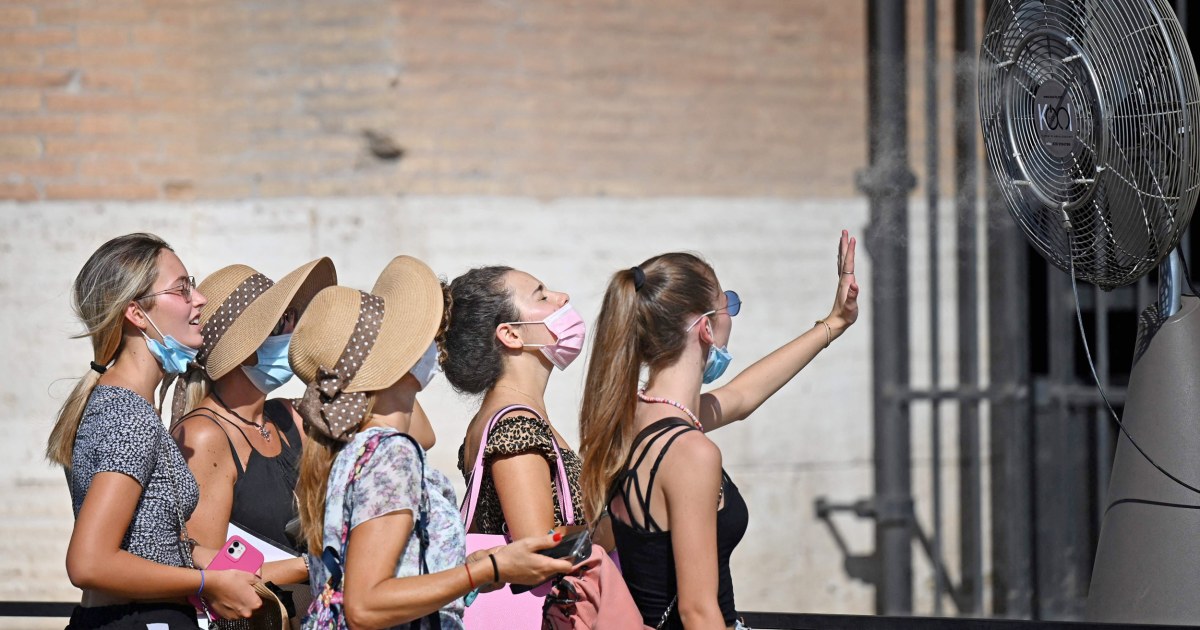
In a summer already full of extreme weather, it's the heat waves roasting hundreds of millions of people across three continents that are confirming a grim climate prophecy for many experts.
Sizzling temperatures in the United States and Canada and persistent heat in parts of Europe and northern Africa are creating dangerous health conditions, aggravating droughts and fueling wildfires around the world. And it's this troubling confluence of climate threats that researchers have been warning about for two decades.
"Climate scientists were predicting exactly these kinds of things, that there would be an enhanced threat of these types of extreme events brought on by increased warming," said Jonathan Martin, a professor of atmospheric science at the University of Wisconsin-Madison. "It's very distressing. These are not encouraging signs for our immediate future."
While August is typically one of the hottest months in the Northern Hemisphere, this week’s heat waves add to a growing list of recent extremes. The National Oceanic and Atmospheric Administration announced Friday that July was the hottest month since record-keeping began 142 years ago. Catastrophic flooding killed more than 200 people in Europe last month, and wildfires are raging in Siberia, across the Mediterranean and along the western coasts of the U.S. and Canada.
But to many experts, these events offer just a glimpse of what lies ahead in future summers because of climate change.
This week, a United Nations panel released an alarming report on the state of climate change and the consequences of further global warming. The assessment highlighted the threat of extreme weather events, including how global warming will make heat waves both more frequent and more intense.
The U.N.'s Intergovernmental Panel on Climate Change found that severe heat waves that previously occurred once every 50 years will now likely happen once per decade. And in a study published last month in the journal Nature Climate Change, scientists determined that record-shattering heat events are up to seven times more likely to occur between now and 2050, and more than 21 times more likely to occur from 2051 to 2080.
The oppressive heat that blanketed the Pacific Northwest early this summer demonstrated how dangerous heat extremes can be. Hundreds of deaths were linked to the June heat wave, and more than 35 cities across Washington state and Oregon tied or set new temperature records.
"The heat event that we had in the Pacific Northwest in June — it's not that we're suddenly going to see that every summer, but the recent extremes are certainly a preview of what we'll see more frequently in the future," said Karin Bumbaco, a research scientist at the University of Washington and Washington’s assistant state climatologist.
Heat waves occur when a ridge of high pressure parks over a region, suppressing cloud formation and causing air to compress and warm. The resulting heat domes have been associated with tropical cyclone activity, which can alter the circulation of air over the Northern Hemisphere and trigger unusual weather patterns.
Heat waves occur naturally in the summer, but climate change is exacerbating these events because emissions of heat-trapping greenhouse gases are causing average temperatures to increase. These changes to baseline temperatures mean that when heat waves do occur, they are more likely to be severe, said Gerald Meehl, a senior scientist at the National Center for Atmospheric Research in Colorado.
"If average temperatures are increasing everywhere, that increases the odds of more intense heat events," he said. "Even relatively small increases in average temperatures cause a much bigger shift in the extremes."
Extreme weather events, including heat waves, are driven by a complex mix of atmospheric processes and can vary from year to year, but climate change helps amplify the threats, said Philip Mote, a climate scientist at Oregon State University.
Global warming can also create feedback loops that then make other extreme events more likely to occur. Droughts, for instance, can intensify heat waves because the sun can more easily heat the ground when there is less moisture in the soil to evaporate.
"Right now, we have drought conditions over half the country, so that's also playing into why we're seeing so much heat this summer," Bumbaco said.
Yet even while climate scientists have spent the past few decades projecting the effects of global warming, Mote said the intensity and pace of changes to the planet have been surprising.
"I've been involved with climate research for 23 years, and I honestly didn't think it would get this bad this fast," he said. "This isn't really news to anyone who have been studying this for a while, but it's depressing to see it coming true."
U.S. - Latest - Google News
August 15, 2021 at 07:49PM
https://ift.tt/3xQSuvj
Heat wave 2021: Climate scientists warn about a new normal - NBC News
U.S. - Latest - Google News
https://ift.tt/2ShjtvN
Shoes Man Tutorial
Pos News Update
Meme Update
Korean Entertainment News
Japan News Update
Bagikan Berita Ini














0 Response to "Heat wave 2021: Climate scientists warn about a new normal - NBC News"
Post a Comment